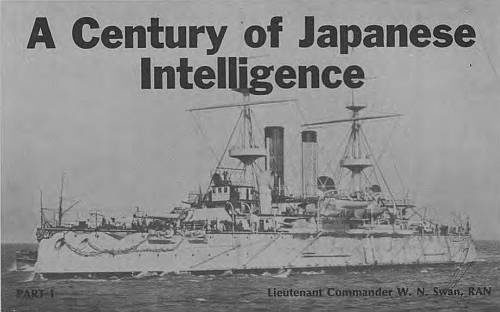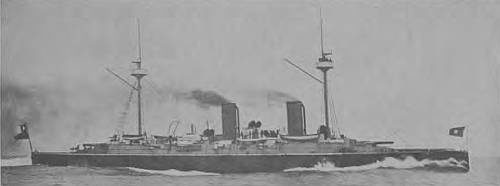- Author
- Swan, W.M., Lietutenant Commander, RAN
- Subjects
- Naval Intelligence
- Tags
-
- RAN Ships
- None noted.
- Publication
- September 1974 edition of the Naval Historical Review (all rights reserved)

Lieutenant Commander Swan has made a comprehensive study of Japanese intelligence agencies, and in this series traces the historical significance of its origin. During his service career Lieutenant Commander Swan had the opportunity of observing Japanese intelligence at work.
THE JAPANESE were, perhaps, the most intelligence-minded people in the world. I use the world ‘intelligence’, but ‘espionage’ could be substituted for it. While abroad, they indulged in espionage, or that nasty word ‘spying’ and when at home, they revelled in counter-intelligence (antiespionage). I intend, however, to put this all under the label of ‘intelligence’ to give it an undeserved aura of respectability. The Japanese had been dabbling in such activities for a very long time, but I shall deal only with the last 100 years, i.e., since the 1860s when Japan emerged from her self-imposed isolation, as this is the golden age of Japanese intelligence when she set out to use it to further the three main aims of State Shintoism. Of these, more later.
Now why were the Japanese so intelligence-minded? It is important to deal with this at the outset as, unless we try to discover what made them like this, this story will be incomplete. It is a regrettable fact that the Japanese became like this largely because of the West, because of us. Or, to be more specific, because of actions by, and fear of, Europeans. I could express it that, just as a backward child is very much the product of its environment, so the Japanese were the product of contact with more advanced, enterprising and enlightened people.
It was the coming of the white man to the Far East in the sixteenth and early seventeenth centuries that put Japan on her guard, and initially caused her Shogun, or Prime Minister/Dictator, to become known as Barbarian Subduing Generalissimo, to cope with these strange pale-skinned interlopers. The Japanese had a certain justification for apprehension, with such moves as the Portuguese annexation of Macao in 1557 and the Spanish colonization of the Philippines Islands in 1570. It was the latter which caused the Japanese most fear, and an Englishman named Will Adams helped to arouse their suspicions by warning them of the dangers of allowing white missionaries and traders free access to Japan. I shall not dwell upon Adams’ motives for doing this; the Japanese erected a memorial to him, near Yokosuka.
The upshot was that in 1637 the Tokugawas, who held the Shogunate at that time, closed Japan almost completely to the outside world. All foreigners, with the exception of a handful of Dutchmen on an artificial island called Deshima in Nagasaki Harbour, were expelled from the country. And this was no passing emotion. It became a permanent policy, and so complete was this closure that no Japanese could leave Japan or build a ship capable of being navigated beyond the coast, that is, one in which he could leave the country.
Japan existed behind this bamboo curtain for 200 years, known as the exclusion period – an incredible feat. The only link with the outside world was the Dutch post, the members of which paid dearly for the right to stay. It was during this period of the Tokugawa Shogunate that it is thought the Japanese developed such closed and suspicious minds, and their extraordinary predilection for intelligence. The Tokugawa family undoubtedly sealed up the country to maintain their personal grip upon it, as they knew the world outside was awakening, that empires were being carved out, and they did not want their power questioned or their people to know too much.

In this period Japan was riddled with the Shogun’s secret police and agents; people watched each other, and woe betide anyone who stepped out of line. The country was divided into areas and the lord of each, known as the Daimyo, had to pay homage regularly to the Shogun in Yedo (Tokyo), their presence there often being ensured by holding their families hostage pending their arrival. All main roads had roadblocks set up to check travellers – the penalty for bypassing such a check point being the axe. The Bakufu, or Shogun Government, could do no wrong.
I am trying not to get too deep into Japanese history, but must seek your patience a little further. You are probably wondering through all this, ‘What of the Emperors?’ Well, they were there all the time, in an unbroken line from Jimmu Tenno in 660 BC. The Shoguns handled the temporal matters, the Emperors being relegated to the role of what might be described as the High Priest of Japan – i.e., spiritual duties in Kyoto.




